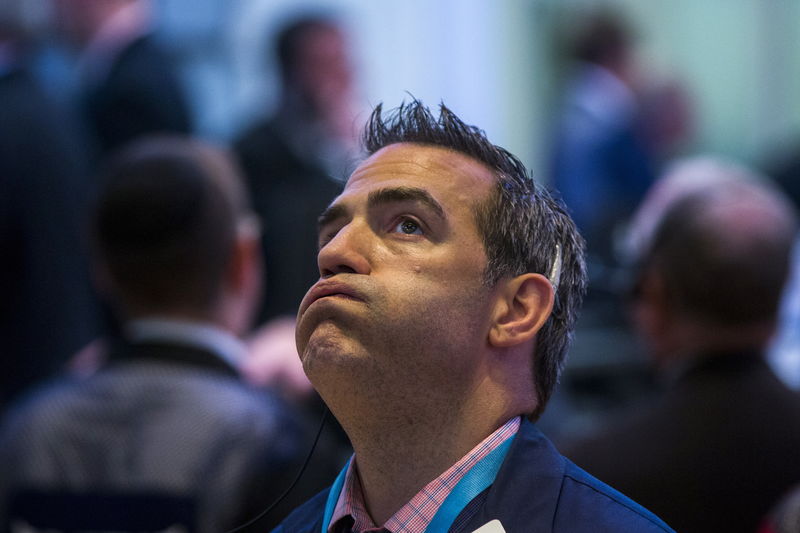By Yasin Ebrahim
Investing.com – The S&P 500 closed lower Thursday, as concerns grew about the global recovery at a time when the delta variant has caused a spike in infections, triggering a jolt of volatility that rattled investor sentiment.
The S&P 500 fell 0.8% to 4,321.81, but had been as low as 4,289.17. The Dow Jones Industrial Average slipped 0.8%, or 259 points, and the Nasdaq was down 0.7%. The S&P 500 VIX Futures - or so-called fear index - jumped 17% to 19.00.
Fears over slowing growth were captured in the bond market, with the 10-year U.S. bond yield plunged to its lowest level since February.
But some on Wall Street are not buying the "peak growth" jitters and argue that there is runway for the recovery, paving the way for more gains in stocks.
"We do not think the markets are worried about economic and earnings growth slowing from these robust levels, at least at this point," Wells Fargo (NYSE:WFC). "We favor economically sensitive sectors like energy, industrials, materials and financials."
Beyond the boost from fears over slowing growth, a decline in the supply of bonds issued by the Treasury is also playing a role in boosting bond prices, sending yields lower.
The Treasury holds $733 billion in cash as of July 6, and is "way behind in making progress toward bringing their cash balances down to the $450 billion target for July 31 prescribed by the debt ceiling legislation," Jefferies (NYSE:JEF) said. "These paydowns will help the process along, but we still expect further cuts."
The spike in Covid-19 cases as the delta variant continues to spread has also put a damper on global growth and threatens the summer of travel, particularly in Europe,
The labor market, meanwhile, continues to suggest a longer road to recovery as initial jobless claims unexpectedly rose by 2,000 to 371,000 last week.
As the enhanced unemployment benefits come to end, Morgan Stanley (NYSE:MS) is backing a wave of supply to the hit the labor market that will help plug the current gap.
"We continue to expect a bump in labor supply late summer as the remainder of the federal supplementary benefit programs are approaching expiration," Morgan Stanley said in a note.
The sea of red for rates usually translates into gains for tech, but growth sectors of the market also succumbed to selling pressure.
Facebook (NASDAQ:FB), Google-parent Alphabet (NASDAQ:GOOGL), Microsoft (NASDAQ:MSFT, and Apple (NASDAQ:AAPL) were below the flatline. Amazon.com (NASDAQ:AMZN), however, bucked the trend to trade higher.
Banks felt the pain of plummeting rates, with Bank of America (NYSE:BAC), Wells Fargo (NYSE:WFC), and Goldman Sachs Group (NYSE:GS) falling more than 2%.
In other news, cryptocurrency sensitive stocks were hurt by a plunge in bitcoin as risk-off sentiment spilled into cryptos.
Coinbase Global (NASDAQ:COIN), MicroStrategy (NASDAQ:MSTR), Square (NYSE:SQ) were down.
